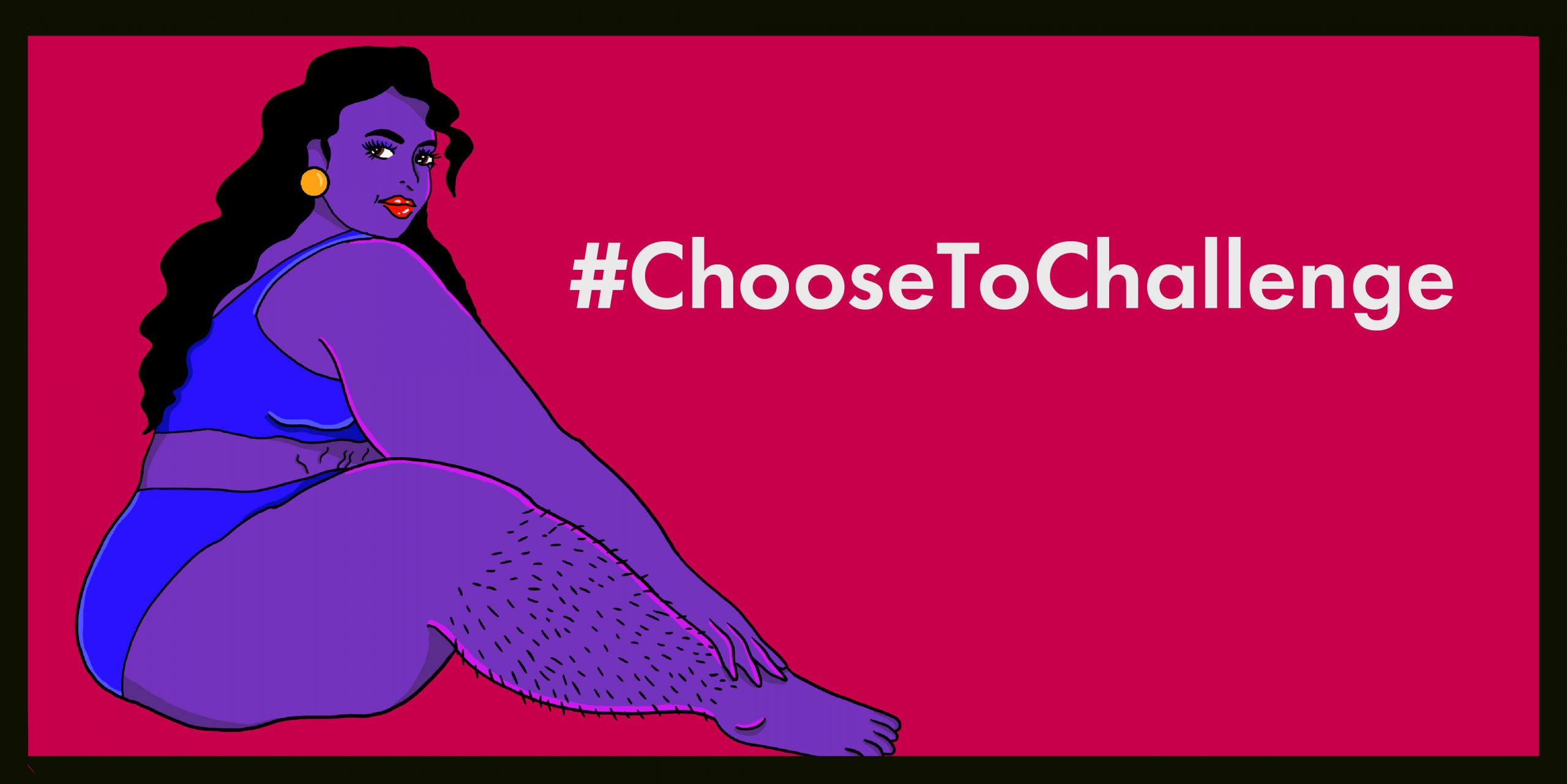March 8 is International Women’s Day. This year the theme #ChoosetoChallenge calls on people worldwide “to challenge inequality, call out bias, question stereotypes, and help forge an inclusive world.”
In this spirit, we want to challenge you to consider the way we talk about women’s bodies and body image. While many individuals and organizations will take this day to advocate for body positivity and acceptance, generalized messages of “love your body” fall short of addressing the complicated realities. Fatphobia is omnipresent in our communities, our media, and our institutions. It goes beyond direct attacks and includes issues of access to spaces, employment, and even medical care, both routine and lifesaving.

Fatphobia is rooted in an entrenched hatred of fat bodies, especially fat women’s bodies, and reinforced constantly through the way we speak about food, diets, and exercise. Fatness is presented as a personal failing; a metric to obsessively scrutinize public figures; and continually used in entertainment to signify that a character is lazy, greedy, unhygienic, undesirable, or the butt of a joke.
Most body positivity campaigns advocate for accepting yourself as you are, but they fail to truly challenge the deep-rooted, systemic discrimination that fat people face – often interlocking with misogynist and white supremacist ideals of beauty. In The Body is Not an Apology, Sonya Renee Taylor writes that “our systems and structures do not exist in a vacuum. These systems in many ways mirror the societies that made them.” Taylor argues that by not actively challenging these systems we are helping them continue, explaining that “systems do not maintain themselves; even our lack of intervention is an act of maintenance. Every structure in every society is upheld by the active and passive assistance of other human beings.”
So for International Women’s Day confront the ideas and language you put out into the world and read the work of writers like Taylor, Roxanne Gay, and Lindy West. Call out fatphobic practices when you see them. And ultimately, choose to challenge not only the idea that your own body is “wrong” but the very notion that there is any “wrong” way for a body to be.
This illustration by Celina Koops is part of CHASI’s ongoing series acknowledging some of the significant annual observances that align with our core values. To learn more and see the other illustrations in this series, please visit our observances page.

